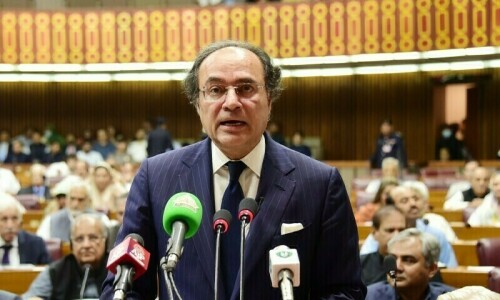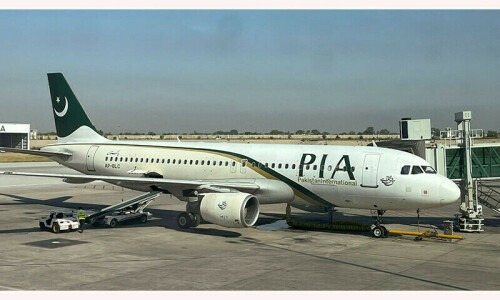MOSCOW, Sept 9: Russia tightened its control over Georgia’s breakaway states of Abkhazia and South Ossetia on Tuesday, establishing diplomatic ties and announcing that 7,600 troops would be based there long-term.
The opening of ties drew a furious response in the Georgian capital Tbilisi where Deputy Foreign Minister Giga Bokeria described it as “yet another step in the annexation of Georgia’s sovereign territories.” A month after going to war with Georgia over South Ossetia, Russia has shown it intends to maintain grip over the two separatist regions which it recognised as independent states two weeks ago.
The day after Russia committed to withdraw troops from the rest of Georgia within a month, Foreign Minister Sergei Lavrov announced that Moscow was formally establishing ties with Tskhinvali and Sukhumi, the breakaway states’ capitals.
“We exchanged notes, which represent an agreement to establish diplomatic relations between Russia and Abkhazia and Russia and South Ossetia,” Lavrov told a press conference.
The diplomatic move -- no other country has ties with them and only Nicaragua has followed Moscow in recognising their independence -- was backed up by a commitment to retain a strong military presence in the regions.
“We have already agreed on the numbers -- around 3,800 in each republic,” Defence Minister Anatoly Serdyukov told President Dmitry Medvedev in a televised meeting.
“I hope that at least this will stop the Georgian military regime from carrying out their idiotic acts,” Medvedev replied.
Speaking earlier, Lavrov said that Russian troops would remain in the Georgian territories for “a long time.” “At least in the foreseeable future this is absolutely necessary, so as not to allow a repeat of armed actions,” he said.
Russian tanks and troops surged into Georgia -- a strategic corridor for Caspian Sea oil and gas exports that aspires for Nato membership -- on August 8 to rebuff a Georgian offensive to retake South Ossetia.
Moscow argued that it repelled Georgian troops to protect thousands of people to whom it had granted Russian citizenship since the 1991 collapse of the Soviet Union.
Hundreds of people on both sides are estimated to have been killed in the conflict. Tens of thousands fled their homes.
After meeting a visiting European Union delegation on Monday headed by French President Nicolas Sarkozy, Medvedev announced that talks would be held on South Ossetia and Abkhazia in Geneva starting on October 15.
Lavrov told journalists the theme of the discussions would be “ensuring security and stability” in the Caucasus region, and that this meant ensuring that Georgia did not re-arm.
After also meeting Sarkozy, Georgian President Mikheil Saakashvili said further European engagement was needed to resolve the dispute with Russia despite its pledge to withdraw troops and allow an EU monitoring force.
“We must continue to implement the European solution to reach a definitive solution respecting Georgia’s territorial integrity and the principle of justice for our country and for our region,” he said in Tbilisi early Tuesday.
But Medvedev on Monday insisted that the independence of Abkhazia and South Ossetia was “irrevocable” as he pledged to withdraw troops from the rest of Georgia and allow 200 EU observers to monitor the withdrawal.
Georgia’s interior ministry said on Tuesday that Russian troops had withdrawn from a Georgian village near the breakaway region of Abkhazia in the first sign it was living up to its promise to pull out.
Sarkozy, whose nation holds the EU presidency, said the 27-nation bloc could return to negotiations on a new partnership accord with Russia if Moscow fulfilled its obligations.—AFP













































Dear visitor, the comments section is undergoing an overhaul and will return soon.